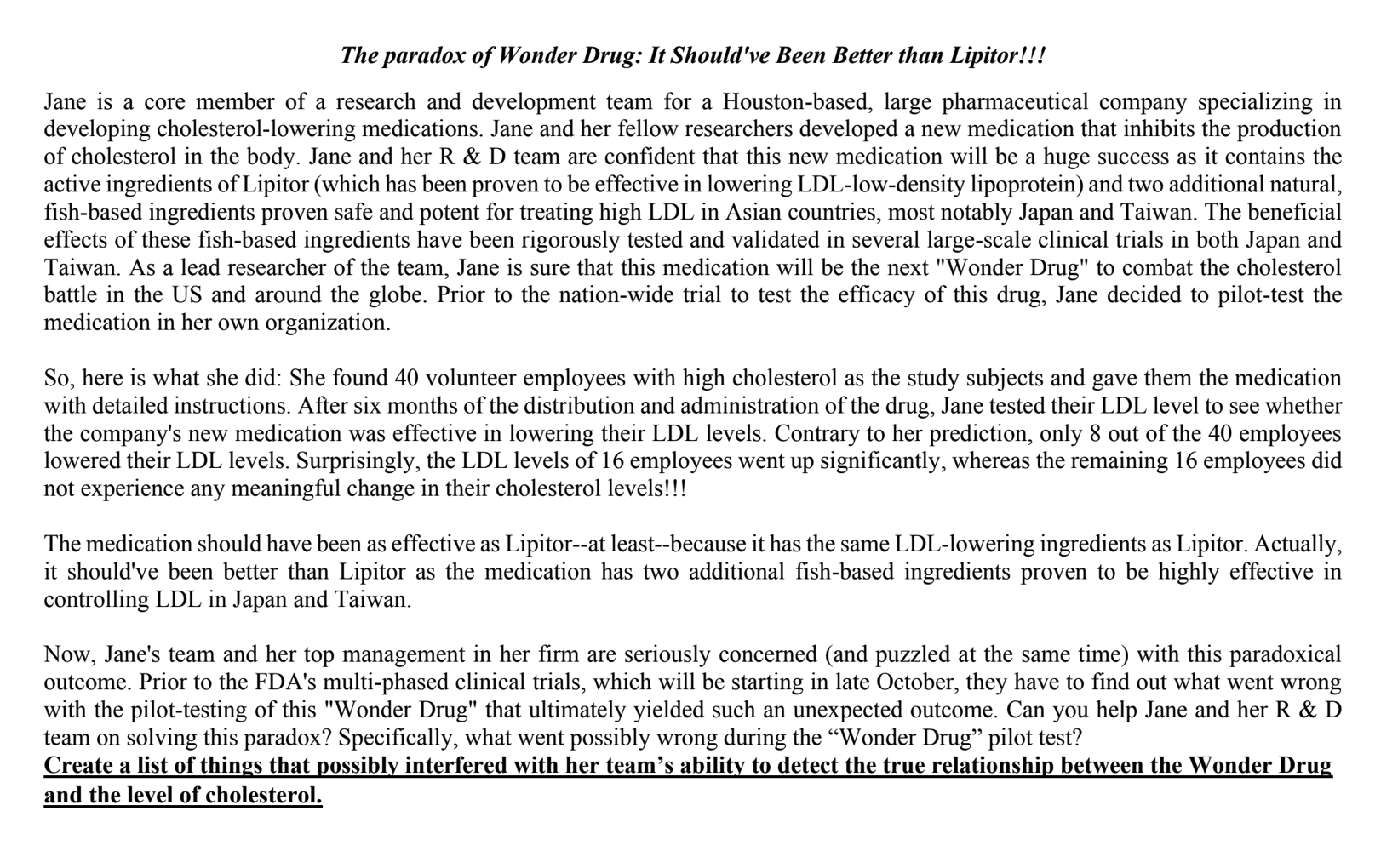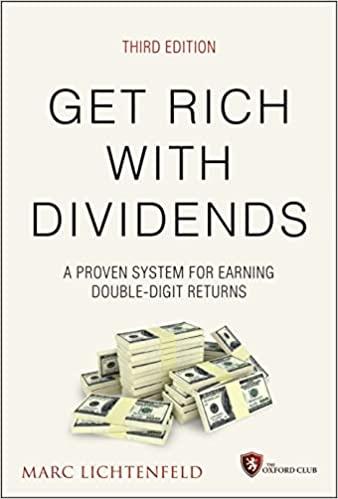
- Read and reflect on Organizational Behavior (Correlation, Moderator, and Behavioral Research Methods)
The paradox of Wonder Drug: It Should've Been Better than Lipitor!!! Jane is a core member of a research and development team for a Houston-based, large pharmaceutical company specializing in developing cholesterol-lowering medications. Jane and her fellow researchers developed a new medication that inhibits the production of cholesterol in the body. Jane and her R & D team are confident that this new medication will be a huge success as it contains the active ingredients of Lipitor (which has been proven to be effective in lowering LDL-low-density lipoprotein) and two additional natural, fish-based ingredients proven safe and potent for treating high LDL in Asian countries, most notably Japan and Taiwan. The beneficial effects of these fish-based ingredients have been rigorously tested and validated in several large-scale clinical trials in both Japan and Taiwan. As a lead researcher of the team, Jane is sure that this medication will be the next "Wonder Drug" to combat the cholesterol battle in the US and around the globe. Prior to the nation-wide trial to test the efficacy of this drug, Jane decided to pilot-test the medication in her own organization. So, here is what she did: She found 40 volunteer employees with high cholesterol as the study subjects and gave them the medication with detailed instructions. After six months of the distribution and administration of the drug, Jane tested their LDL level to see whether the company's new medication was effective in lowering their LDL levels. Contrary to her prediction, only 8 out of the 40 employees lowered their LDL levels. Surprisingly, the LDL levels of 16 employees went up significantly, whereas the remaining 16 employees did not experience any meaningful change in their cholesterol levels!!! The medication should have been as effective as Lipitor--at least--because it has the same LDL-lowering ingredients as Lipitor. Actually, it should've been better than Lipitor as the medication has two additional fish-based ingredients proven to be highly effective in controlling LDL in Japan and Taiwan. Now, Jane's team and her top management in her firm are seriously concerned (and puzzled at the same time) with this paradoxical outcome. Prior to the FDA's multi-phased clinical trials, which will be starting in late October, they have to find out what went wrong with the pilot-testing of this "Wonder Drug" that ultimately yielded such an unexpected outcome. Can you help Jane and her R & D team on solving this paradox? Specifically, what went possibly wrong during the "Wonder Drug" pilot test? Create a list of things that possibly interfered with her team's ability to detect the true relationship between the Wonder Drug and the level of cholesterol. The paradox of Wonder Drug: It Should've Been Better than Lipitor!!! Jane is a core member of a research and development team for a Houston-based, large pharmaceutical company specializing in developing cholesterol-lowering medications. Jane and her fellow researchers developed a new medication that inhibits the production of cholesterol in the body. Jane and her R & D team are confident that this new medication will be a huge success as it contains the active ingredients of Lipitor (which has been proven to be effective in lowering LDL-low-density lipoprotein) and two additional natural, fish-based ingredients proven safe and potent for treating high LDL in Asian countries, most notably Japan and Taiwan. The beneficial effects of these fish-based ingredients have been rigorously tested and validated in several large-scale clinical trials in both Japan and Taiwan. As a lead researcher of the team, Jane is sure that this medication will be the next "Wonder Drug" to combat the cholesterol battle in the US and around the globe. Prior to the nation-wide trial to test the efficacy of this drug, Jane decided to pilot-test the medication in her own organization. So, here is what she did: She found 40 volunteer employees with high cholesterol as the study subjects and gave them the medication with detailed instructions. After six months of the distribution and administration of the drug, Jane tested their LDL level to see whether the company's new medication was effective in lowering their LDL levels. Contrary to her prediction, only 8 out of the 40 employees lowered their LDL levels. Surprisingly, the LDL levels of 16 employees went up significantly, whereas the remaining 16 employees did not experience any meaningful change in their cholesterol levels!!! The medication should have been as effective as Lipitor--at least--because it has the same LDL-lowering ingredients as Lipitor. Actually, it should've been better than Lipitor as the medication has two additional fish-based ingredients proven to be highly effective in controlling LDL in Japan and Taiwan. Now, Jane's team and her top management in her firm are seriously concerned (and puzzled at the same time) with this paradoxical outcome. Prior to the FDA's multi-phased clinical trials, which will be starting in late October, they have to find out what went wrong with the pilot-testing of this "Wonder Drug" that ultimately yielded such an unexpected outcome. Can you help Jane and her R & D team on solving this paradox? Specifically, what went possibly wrong during the "Wonder Drug" pilot test? Create a list of things that possibly interfered with her team's ability to detect the true relationship between the Wonder Drug and the level of cholesterol







